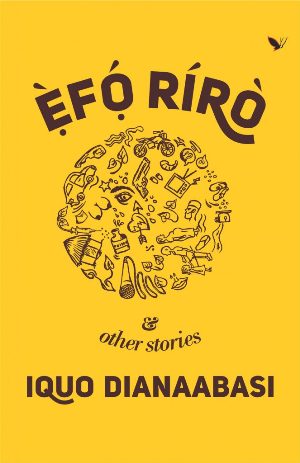
The Yoruba people of West Africa take great pride in our names: spilling over with riches, they are exalted with majesty and by the ties of ancestry. Oladimeji, Obayomi, Iyabo. Through our names we acquire divinity.
Omilara means “the family are like water†so it is no wonder that Omilara should be the spiritual child of the Da Costa family; the waking dreamer, the seer, since childhood, of the “Daddy people†That it should be Lara’s eyes that come to “rest on a woman whose fathomless gaze unravel such love in (her) she feels faint with it…†This woman is Zenobia – her paternal grandmother who speaks to her from eternity and takes her on a journey “into memory†so that damp musky earth, saccharine and vanilla scents, reach Lara from the Brazilian plantation on which her ancestor, Tolulope, toils as a slave, and on which she is raped by its owner.
If
bloodshed and rape are the entry point into Lara’s patrilineal ancestry, the
benign, hard-headed domesticity of her matrilineage, are the antidote to that violence
and pain.
Firmly rooted in Anglo-Irish poverty, Mary Jane, Lara’s great
rooted in Anglo-Irish poverty, Mary Jane, Lara’s great
grandmother, is amused by her daughter Edith’s flights of fancy about her future as a married woman.
Mary Jane has no such fantasies: her husband is a glassblower struggling to be the “Provider†while she supplements his ‘paltry pay’ as a dressmaker “taking in, stitching food into mouths, clothes onto bodies …her honeyed Rs and Irish vowels once lyrical as a trickling stream (have long) been coarsened by stunted desires… nasalised by city concrete.†The da Costa family – diasporan - is indeed like water. Theirs is a global course. 1844 Brazil, 1888 London, the 1930s Lagos London; the 1940s, the 50s… Leveraging the economy and evocation of poetry, the narrative dips in and out of history, in and out of geography until finally Lara emerges beneath the splendour and ‘outstretched armspan of Christ the Redeemder, Corcovado. The year is 1995. We are with Lara in Rio di Janeiro, Brazil; she has come full circle. In this book in which the past freely inhabits the present Episodes, experiences are fugues in time, charms on a shining thread - the golden thread of ancestry. This book is very well crafted. 2 lineages - 4 generations of 2 families - as divided - in race as they are united in aspirations to escape slavery, poverty; as divided by race as they are united in their fervent hopes for elevation into a better, higher life.
 Hope for the high life finds colourful
Hope for the high life finds colourful
neighbours “mutterâ€, and how their “heads gyrate†and their “fingers shakeâ€. “After all I’ve done for you!†screams Edith. “I have sacrificed my whole life for you! How can you do this to me your own mother!†But Lara is a story of passion for wider horizons; it is a story of adventure and neither the Strawberry Hills boys nor Stephen Brown from church will do.
This time Ellen will defy her mother and marry Tooyamiya, Tiyowoyo and give birth to a whole tribe of mixed race children . The thought of thier brown skins fills a defeated Edith with horrified doubt that she can ever love them.
Bernardine Evaristo has narrated this family epic in verse that is exuberant, highly sophisticated and yet so accessible. Her recording of racism is dramatic, raw, she pulls no punches. In her rendering of the pain of living she has acuity, using language that explodes with the force of nature. And yet she treats her characters emotions with great respect. Revisit her presentation of Ellen’s sense of bereavement when she loses her mother. Revisit also, Taiwo’s agony, the feeling of having been amputatated when he loses Kehinde, his twin sister. It cuts to the quick. .
As for the sex in Lara? Turn to page 41 right now and tell me Evaristo doesn’t write sex the way should feel. Finally, if coming of age is difficult, its particularly poignant here: honey-skinned Lara must come to terms not only with spots and hormones in a riot , but with being “differentâ€. Top 20, blue mascara, Bowie, Jackson 5, amidst the “kaleidoscope†of 70s and 80s English pop culture, Lara must embark on a personal journey in search of herself; in search of home.
Since writing LARA, Bernardine Evaristo has become a literary great. Multiple novels to her name both in poetry and in prose – each one critically acclaimed. Her editorships include a special issue of Wasafiri magazine called Black Britain and the first Brunel University short story anthology, The Voices Inside Our Heads. She is co-founder of Spread the Word literature development agency, a fellow of the Royal Society of Literature and is in demand worldwide as a speaker. She has been a Chair of Judges of the Caine Prize and Chair of the Commonwealth Short Story Prize. From this mountain of evidence, can we safely say that that Lara has found herself? And that in her calling, if in no other place, she has found her true, abiding home?
In 2019, Bernardine Evaristo won the prestigious Booker Prize (jointly with Margret Atwood) for Girl, Woman, Other, her fusion fiction focused on twelve diverse women and set in the United Kingdom. Evaristo has made history by being the first black woman to win the Booker Prize.
Click Here to get a copy




